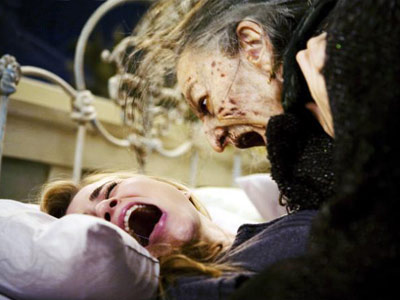
Australian films are traditionally cool, calm and collected even when dealing with the most sensational subject matter (just check out the way Beautiful Kate deals with the biggest taboo around). Balibo runs against that trend: it's angry that five Australian journalists died at Balibo, it's angry that thousands of Timorese died in the invasion and its aftermath, and it's angry that the Australia government did nothing to prevent it from happening.
Our guide through the emotional roller-coaster of late 1975 is Australian journalist Roger East (Anthony LaPaglia), who goes from barely interested outsider to a man so passionately angry about the events of the Indonesian invasion that he's willing to risk everything to get the truth out there. As East heads out into the strife-torn countryside to investigate the disappearance of the Balibo Five the film becomes a gripping look at the horrors of war, and as such it's one of the most powerful Australian films of recent times.
The flashbacks to the Balibo Five's final few weeks are skilfully done and often deeply moving, and the depiction of East Timor's final few weeks of independence is surprisingly layered and complex. But just because it's powerful doesn't mean it's perfect: director Robert Connolly (The Bank, Three Dollars) is so committed to stirring up the audiences outrage that occasionally he oversteps the mark and goes from agiprop to outright parody. The film doesn't exactly end with someone being gunned down against the backdrop of an Australian flag left splattered with their blood... but it comes close.
Balibo is to be applauded for having the courage to want to make an audience feel strongly about an issue, and for being both a compelling wartime drama and a chilling reminder of the brutalities that have taken place on our doorstep in the recent past. But if you're looking for nuance or subtlety, look elsewhere.
Anthony Morris (this review appeared in Forte #459)



